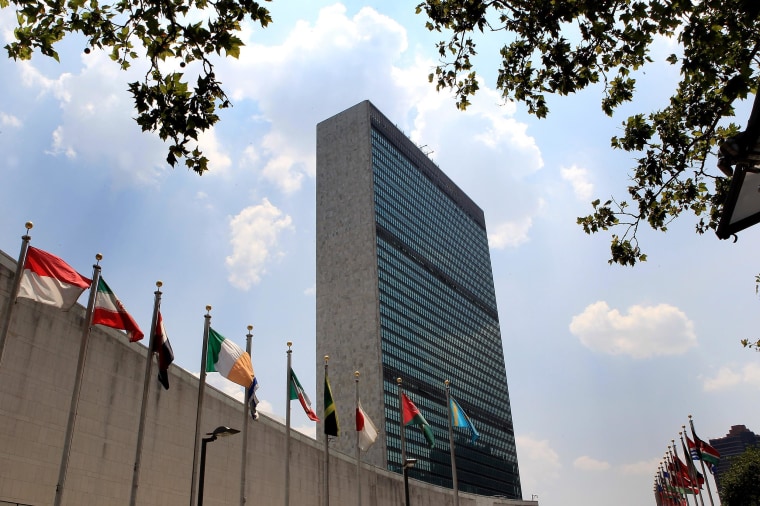Which operation has the United Nations bungled most badly? The ponderous response to the Ebola epidemic — or the ongoing deployment of 4,500 troops in Haiti? Or was it the dispatch of peacekeepers to the Central African Republic who have ended up accused of raping and abusing the people they’re supposed to be looking out for?
Anthony Banbury, the UN's former head of field operations finally settles on Mali, where 10,000 troops were sent in 2013 to counter Islamist extremists.
"Our most grievous blunder is in Mali," Banbury writes in an unusually scathing goodbye note in the New York Times. “Inexplicably, we sent a force that was unprepared for counterterrorism and explicitly told not to engage in it.”
Banbury, who has left the U.N. to work for Vulcan, Microsoft co-founder Paul Allen’s investment and philanthropic company, blames red tape and bureaucracy.
“The organization is a Remington typewriter in a smartphone world,” he writes.
“If you locked a team of evil geniuses in a laboratory, they could not design a bureaucracy so maddeningly complex, requiring so much effort but in the end incapable of delivering the intended result. The system is a black hole into which disappear countless tax dollars and human aspirations, never to be seen again.”
“If you locked a team of evil geniuses in a laboratory, they could not design a bureaucracy so maddeningly complex."
The U.N. and its health arm, the World Health Organization, have admitted several times they were too slow to act when Ebola started to spread in Guinea, Sierra Leone and Liberia. The epidemic has infected more than 28,000 people and killed 11,000 of them, and likely many more.
Banbury detailed some of his frustrations in trying to deal with the crisis as head of the United Nations Mission for Ebola Emergency Response at the end of 2014
“During the Ebola epidemic, I was desperate to get qualified people on the ground, and yet I was told that a staff member working in South Sudan could not travel to our headquarters in Accra, Ghana, until she received a new medical clearance,” he wrote.
“We were fighting a disease that killed many thousands and risked spinning out of control and yet we spent weeks waiting for a healthy colleague to get her forms processed.”
"The system is a black hole into which disappear countless tax dollars and human aspirations, never to be seen again.”
That keeps qualified people away from the organization best suited to deal with the world’s biggest crises, he argued.
“The United Nations needs to be able to attract and quickly deploy the world’s best talent. And yet, it takes on average 213 days to recruit someone. In January, to the horror of many, the Department of Management imposed a new recruitment system that is likely to increase the delay to over a year,” he wrote.
“Secretary General Ban Ki-moon is a man of great integrity, and the United Nations is filled with smart, brave and selfless people. Unfortunately, far too many others lack the moral aptitude and professional abilities to serve.”
The U.N. is not alone in being criticized for a slow response. A presidential commission said last year that the U.S. fumbled its response, too. Vaccines and drugs had been in the works for years, many with government funding and in government labs. But scientists who worked on them said there was never quite enough funding or support to move them forward. As a consequence, officials have had to rush their development and testing.
Some experts are now accusing the U.N. of moving too slowly to battle Zika, also, even though the organization says it’s deliberately trying to do better in helping fight the mosquito-borne virus suspected of causing severe birth defects and neurological side-effects.

